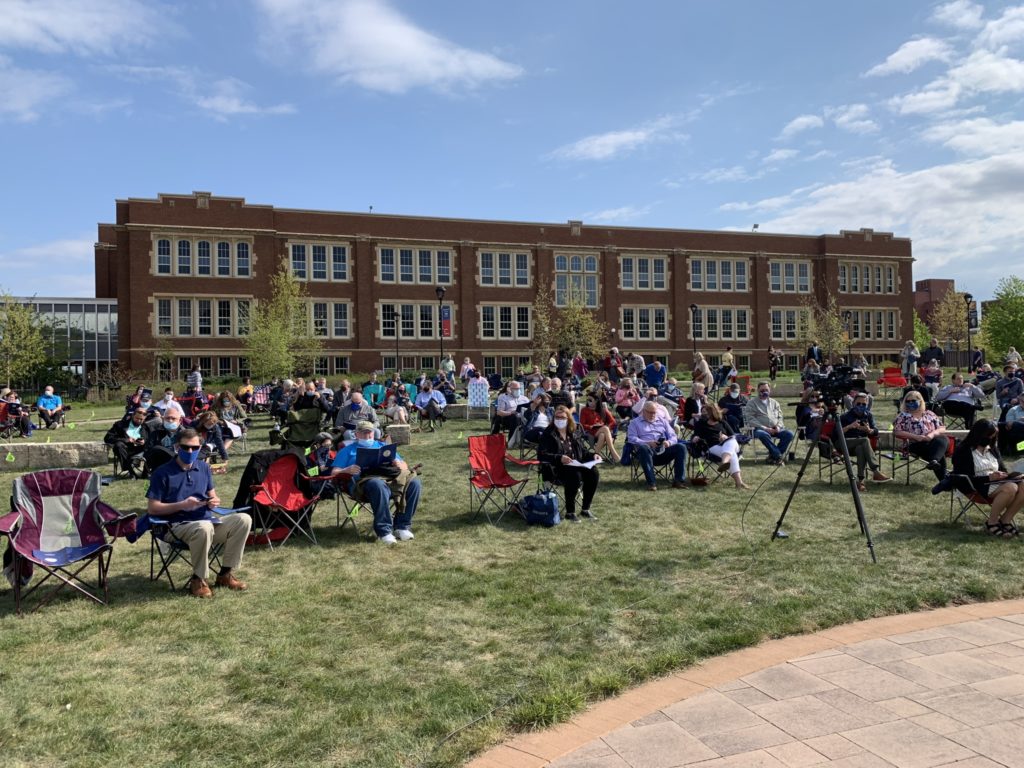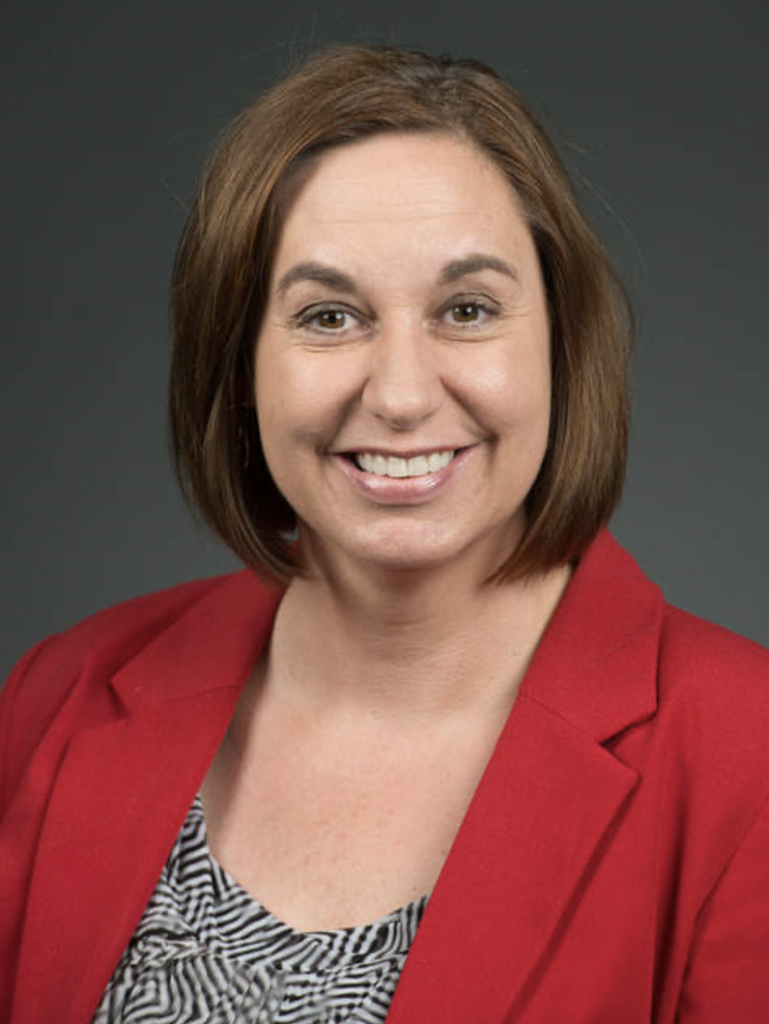For New College Graduates, a Bleak Picture Turns Brighter


For the U.S. college class of 2021, an estimated 4.4 million new graduates, senior year brought a multiple whammy. Often quarantined and locked down, they missed many of the pleasures of college life: small classes, sports, parties, spring break, beer pong. The crowning touch on all this frustration is the uncertain job market they face. While improving briskly, the U.S. unemployment rate is 6.1%, vs. 3.5% just before the pandemic. To find out what they’re thinking as they put on caps and gowns, From Day One visited one midwestern campus, the University of Wisconsin-Eau Claire, a top regional public college, where our winter intern Adam Pearson is graduating in the class of 2021. His report:
For the 1,646 undergraduates who received their degrees from UW-Eau Claire last weekend, it’s a tale of two job markets. Madeline Waters of Appleton, Wis., is one of many who have found a lack of demand in their chosen industries. “I feel like it’s really bad,” said Waters, who graduated with a double major in Spanish and communications. “Something where I can use both would be really, really awesome,” she said. She’d like a job in digital marketing, but there's a catch: “A lot of places require you to have experience, which is understandable, except a lot of internships and stuff like that were cut short because of Covid.” For the time being, she said, “I’m just looking for anything I can get.”
On the other hand, Maria Moldenhauer of Taylor, Wis., who graduated with a criminal-justice major and psychology minor, already has a job lined up. She’ll be a probation and parole agent. “I feel like there’s a lot of options out there, definitely a lot of openings,” she said. “I didn’t have any trouble finding a job.”
What’s driving these divergent prospects? In the depths of the pandemic last spring, new college grads faced historically bleak prospects. The decline in job postings requiring a bachelor’s degree fell by 40% between March and May of 2020, more than for any other category of education, according to a study by Burning Glass Technologies, a labor-market analytics firm. The mismatch closed considerably by January of this year, to 12%, but many new graduates are still feeling the gap.
One of the main factors is the industry they’re entering: health care is hotter than ever, while many areas of business and communications are still cool. Another factor is experience: those who had internships and other jobs before the pandemic, or found opportunities during the crisis, felt it gave them an advantage. All told, however, many graduates are finding jobs as the economy rebounds briskly, showing a brightening horizon as they launch their careers.
Internships: the Bridge Over Trouble Waters
Taj Jackson of Evanston, Ill., who graduated with a major in sociology and a minor in HR, already has a job lined up in the corporate office of a retirement-home company. Over the past year Jackson interned for the company, where he phone-screened job applicants and promoted the company at job fairs. “I got a lot of people hired, so then they’re like, ‘Don’t be afraid to reach out to us. We have a spot for you, definitely,’” he said. It wasn’t necessarily the career path he was expecting. “Honestly, not for my whole life, but I feel like maybe three, four years. You know–see where I can go with the company. But my end goal is to have my own company.”

An internship inspired Nikolaus Spittlemeister of Hartford, Wis., in another way. He found a job that’s giving him the “pretty breathtaking” opportunity to return to the place of an earlier internship: San Francisco. Spittlemeister, who graduated with a business-administration degree and a minor in German, has accepted a job there with the Federal Deposit Insurance Co. He’ll start next month as a bank examiner, “making sure banks aren’t redlining and are making accurate credit disclosures to protect consumers.”
Graduates who have gotten nibbles of interest from prospective employers, but no job so far, feel that the lack of internship opportunities this past year is holding them back. Marin Munos of Aurora, Ill., who studied journalism and Women’s, Gender, and Sexuality Studies, is looking for a role in the nonprofit sector. “I have had some interviews and made it to the second round a few times, but they often are just looking for someone with more experience,” she said. “Being a recent college grad, it’s really hard for me to have the experience they are looking for. And since Covid, everyone is looking for a job, so that makes the job market really competitive right now.”
Trevin Hanson, for whom Eau Claire (pop.: 68,802) is his hometown as well, majored in business administration with a minor in finance. He wants to go into banking, insurance or financial services, but is still looking. “The job market is better than I thought it would be coming out of a pandemic, but there definitely aren’t as many jobs as there normally would be,” he said. “Also, I wish that employers didn’t require three to five years of experience for jobs that shouldn’t need it.” Madeline Waters, the communications grad, put it most bluntly: “It’s kind of like a ridiculous expectation.”
Field of Dreams: Health Care
Sara Heller, of Chippewa Falls, Wis., who received a bachelor’s degree in nursing (BSN), will start work soon as a registered nurse in the intensive-care unit at the Marshfield Medical Center-Eau Claire. “I think the job market is pretty crazy with Covid, even in nursing,” she said. “I was lucky to have an internship prior to getting hired, so I was able to meet my managers and co-workers, which I think helped.”
Pamela White, the chief nursing officer at the Mayo Clinic Health System in Eau Claire, confirms the demand for recent graduates. “Generally, we had a higher number of entry-level positions based on Covid-19 and additional new services we need to support,” she said. White believes the need will only increase in the near future based on the expected number of Baby Boomers retiring. Chloe Davis, who graduated from UW-Eau Claire with a biology major in 2018, believes the power is in the hands of the job candidates. “At this point, it’s not the corporation or the companies that are in charge. It’s the workers, because they need us more than we need them,” she said. “It’s a very good time to be in the health-care field.”
Other promising fields right now include social and legal services, judging by the optimism among recent UW-Eau Claire grads entering those industries. “Eleven of 15 graduates of the paralegal program last year had jobs right out of the program, and two of the other students decided to continue their education,” said Evelynn Hitz, who has degrees in criminal justice and sociology. “Law careers are considered an essential profession, and have been working throughout the pandemic,” said Hitz, who is moving to Minnesota and has a job interview lined up for a legal-assistant role in a public-defender’s office.
Choosing a Different Path
Not every graduate, of course, is jumping right into the job market. Some are finding the timing right to enter a year of service, or go to graduate school. Megan Roehl of St. Cloud, Wis., who double-majored in economics and supply-chain operations, plans to spend a year at the Riverwest Food Pantry in Milwaukee, where she will work in operations. After that, her career plans are sharply defined. “My goal is to work in health-care supply chain for a Catholic Hospital,” she said.
Olivea Boyer of Waseca, Minn., who majored in social work, plans to enter the University of St. Thomas School of Law in St. Paul, with a focus on public-interest law. Boyer feels that the pandemic helped prepare her for her future career. “I think it’s been a particularly interesting opportunity to grow,” she said. “Being a social-work student, this has been an excellent time to learn and figure out how you best help people when it’s really hard to see people. We’ve all had to learn to do things differently, which prepares you for the real world in a way we might not have been prepared for otherwise.”
Still Looking: the Aftereffects of the Pandemic Recession
“It’s rough out there,” said Will Seward, a 2020 graduate with a degree in creative writing. As one of his professors warned him, the search itself has almost become his job, consuming nearly five hours a day. So far, he has applied to hundreds of jobs. This effort has produced two interviews and one job offer, which he turned down because it paid less than his current gig as a Nikon expert at Best Buy. “It’s been difficult,” he said. “Most jobs turn out to be dead-ends, or they're looking for other general-labor things that I am overqualified for.” He added: “I always limit my job-search engines to ‘entry level’ only, and I’m finding tons of things requiring five-plus years of experience or master’s degrees.”
Noelle Hitz, a 2019 graduate with a degree in conservation and outdoor education, has run into similar challenges. “People with master’s degrees are taking entry-level positions,” she said, “Leaving the rest of us looking for temporary, minimum-wage positions.” Hitz says environmental positions are especially difficult to find because funding decreased during the pandemic-induced recession. “After I graduated, I completed a year-long service term with Americorps,” she said. “It was supposed to be excellent for my resume and basically guarantee me a job at the end of my service term. Plot twist: It did not.” Her advice to peers whose plans have been delayed by the reality of the economy: “My advice would be to not get down on yourself. Everyone is struggling.”
A Visit to the Career-services Office
This might be a good time for students to change their attitude toward a resource they often neglect: their college career counselors. In a Gallup Poll, 78% of graduates said they rarely if ever used their colleges career-services office, the Wall Street Journal reported. Staci Heidtke, the associate director of UW-Eau Claire’s Advising, Retention + Career Center, is currently emphasizing flexibility as students find their way in the current economy. “I encourage students to reframe their first work experience after college,” she said. “Plans are good, but sometimes graduating students need to adapt and pivot.”

Heidtke and her colleagues are offering technical advice as well. “One of the obstacles for job seekers is virtual recruiting,” she said. “Students express uncertainty with using technology, and how to ‘meet’ employers virtually. We encourage students to practice this.” Specifically, she suggests writing down talking points to impress employers with relevant questions and the ability to keep a conversation going. Her more expansive advice: “There are still great jobs out there. Be patient and ask for help.”
Class of 2021 graduate Carly Swisher of Chanhassan, Minn., who majored in journalism, is living proof of Heidtke’s appraisal of the job market’s hidden gems. Swisher will be moving to La Crosse, Wis., to start work at TV station WXOW as the morning anchor. “This is my dream job!,” she said. “La Crosse is a small market size, number 129, so it’s not the best pay starting out, but I’m excited. Since it’s smaller, I can really get to know the community. I personally don’t care about market size–I just want to be happy where I’m working.” With additional reporting by Lea Kopke and Sarah Tweedale/Eau Claire
Adam Pearson, From Day One's 2021 intern, is graduating from the University of Wisconsin-Eau Claire with a major in communication and journalism, and has been host and producer of Blugold Radio Sunday.
The From Day One Newsletter is a monthly roundup of articles, features, and editorials on innovative ways for companies to forge stronger relationships with their employees, customers, and communities.